Dmitry Patrushev about ban on import of foreign seeds to Russia: ‘They can tell us — survive as you can’
New rules are entering into force from 1 September to localise the import of foreign seeds for the main types of crop crops, and from October 1, the government of the Russian Federation may introduce quotas for the import of seeds of nine crops into the country, including potatoes, wheat, rye, barley
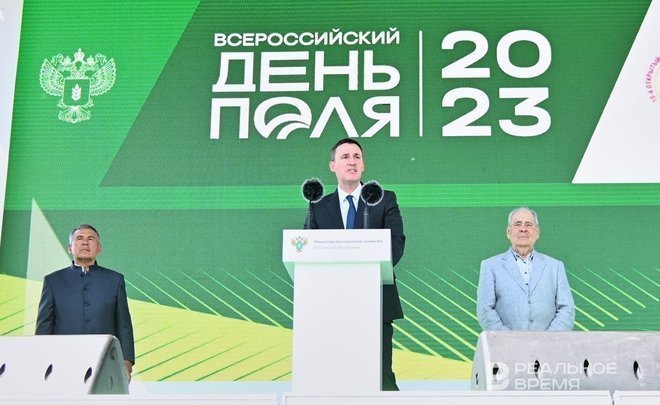
“The ban on the import of seeds will not be global but will affect the suppliers exclusively from unfriendly countries," Dmitry Patrushev, the head of the Ministry of Agriculture of Russia, explained the purpose of future breeding restrictions. At the plenary session of the All-Russian Field Day 2023 exhibition, agrarians verified the course for import substitution of “all and everything”, which began with the withdrawal of foreign partners from Russia. About what “seed localisation” threatens local agricultural producers, how deputy head of the Ministry of Industry and Trade Albert Karimov persuaded to buy more expensive domestic agricultural machinery, and what bothers Mintimer Shaimiev — in the report of Realnoe Vremya.
“Boris Pavlovich is ready to finance everyone!”
The final chord of the traditional agricultural exhibition All-Russian Field Day 2023, which brought together farmers from all over the country in Kazan, was a speech by the leadership of the Ministry of Agriculture of Russia with an assessment of the economic status quo in the era of sanctions. In spite of them, the record for the harvest and export of grain in 2022 has been broken, which agricultural producers can repeat to this harvesting company, and in parallel, there is a replacement of foreign agricultural machinery, technologies and agrochemicals, Dmitry Patrushev radiated optimism. Before the end of the winter, he found it impossible to say how much the harvest of 2023 could surpass last year's, but a cautious forecast was still made at the very end of the plenary session. The head of the Ministry of Agriculture hopes that this year farmers will overcome the bar of 123 million tonnes of grain.
“So far, we adhere to the same volume in the production forecasts of 123 million tonnes. Of these, 78 million tonnes should be wheat," he said. “Everything is according to the plan. We have already harvested about 6 million tonnes of grain. Perhaps, we will reach volumes of one million tonnes per day.
According to him, support for farmers has increased significantly this year — up to 24 billion rubles instead of last year's 19 billion rubles. Rosselkhozbank, the main bank of the villagers, approved the issuance of preferential loans for 236 billion rubles. However, this figure slightly confused him.
“Maybe it's not finalised enough? Boris Pavlovich (Listov, head of the Rosselkhoznadzor — editor's note), am I right? Are you ready to finance everyone? Well, stand up, please, Boris Pavlovich! Boris Pavlovich is ready to finance everyone!” Patrushev joyfully declared when he got up and took the microphone. Later, the head of the Ministry of Agriculture admitted that the system support measures are not as extensive as we would like, but they are affordable. Moreover, he appealed to the heads of regions with a proposal to subsidise farmers in addition to federal measures. As a sample, he cited Tatarstan, which pays subsidies for the purchase of machinery and mineral fertilisers.
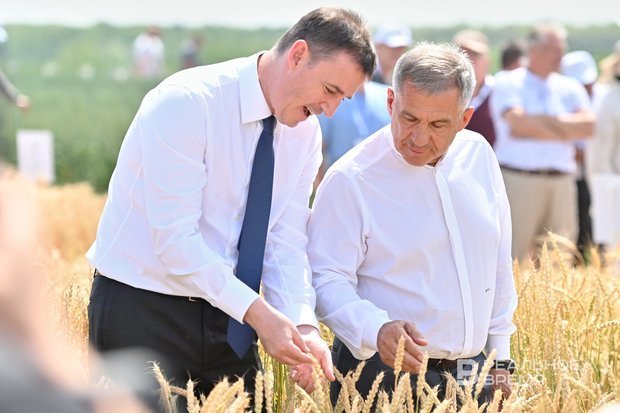
The downside of the records is a drop in grain purchase prices within the country, which worries the villagers.
“The profitability of crops has fallen," Dmitry Patrushev did not gloss over the problem.
But he does not consider it effective to conduct grain state interventions.
“Three million tonnes of grain have been purchased as part of the interventions. Someone says it is little, but I think enough," he said. According to him, 11,3 billion rubles have been allocated to subsidise rail transportation to strengthen sales, and 40 billion rubles have been provided as direct support to those engaged in grain cultivation. In 2022, Russia harvested a record 157,7 million tonnes of grain, including 104,2 million tonnes of wheat. In 2021, the harvest amounted to 121,4 million tonnes, including 76,1 million tonnes of wheat.
“We will continue to work with foreigners, but we will develop the work on certain special conditions”
The hot-button topic of recent days is the upcoming restrictions on the import of foreign seeds. From October 1, quotas may be introduced for the import of seeds for nine crops — potatoes, wheat, rye, barley, corn, soybeans, rapeseed, sunflower, and sugar beet. It is assumed that an exception is possible only for imports from the EAEU member states. The Ministry of Agriculture is preparing a proposal on the volume of quotas for the import of seeds.
“It's necessarily right that that everyone will like the decision right away, but there is no other way out," Dmitry Patrushev intrigued the audience.
According to him, the Ministry of Agriculture intends to work with those who agree to localise within Russia and, perhaps, even transfer the patent: “We will continue to work with foreigners, but we will develop work on certain special conditions. The new rules will come into force on September 1. According to them, the localisation of seed production should be complete.”
“We do not need indecisive solutions — for example, only the import or reproduction of parental forms," he explained. “We need production organisations here, the organisation of the entire production cycle. This implies, among other things, the granting of a patent for copyright ownership. Then we will be safe to a certain extent.
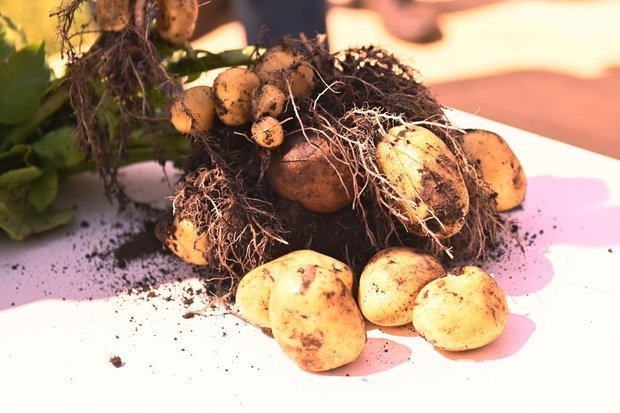
How willing are the partners to work?
“They don't really want to, but they are ready. There is no other way. We have a huge market. They don't want to lose it," Patrushev believes.
He cited as an example the story of a European company that “sent out letters of resignation to everyone”, and then decided to return: “Well, good day, goodbye. We shook their hands and said we could do it without them. They turned everything in the opposite direction.”
“Who do you think has become the leader in the number of tractors shipped?"
The deputy head of the Ministry of Industry and Trade of Russia, Albert Karimov, came to persuade farmers to buy domestic agricultural machinery — tractors, combines, seeders. Due to the complication of the logistics of automotive components, it has risen in price — from 30 to 100%, i.e. almost twofold. The Ministry of Industry and Trade of the Russian Federation offers to purchase equipment with a 30% discount, having knocked out subsidies of 3 billion rubles in the federal budget. Due to them, the regions can purchase 6 thousand tractors, the deputy minister said.
“The price of complex machinery has increased: tractors, combines. This is due to logistics. But the equipment has become more productive and comfortable, which has affected the price," Karimov explained the reason for the increase in cost.
According to him, the regions responded to purchases with a discount of 30%, submitted an agreed delivery plan. But not all of them.
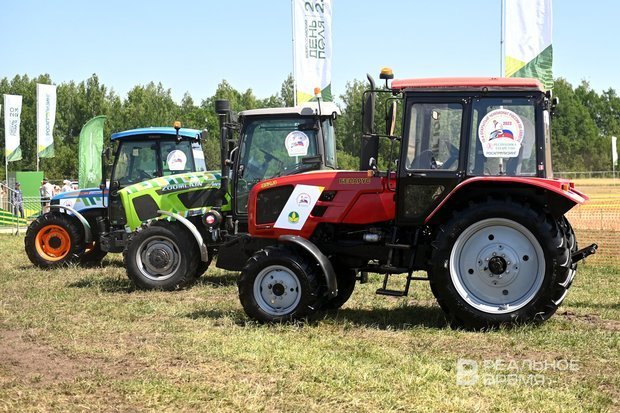
“Who do you think has become the leader in the number of tractors shipped? Tatarstan, Oryol Oblast," Karimov said to the laughter of the audience. “Other regions need to catch up. Altai, Saratov — zero shipments.
“We will not go with excessive costs”
Tatarstan State Councilor Mintimer Shaimiev came to the forum for the first time in the last couple of years and took the place of the guest of honour along with the speakers on the panel podium. He came up with a rather expensive initiative: to expand the construction of irrigated pastures to improve the fodder base of cows. This means that in places where cows graze, it is necessary to drill underground wells, from where water will rise and irrigate the field.
“Tatarstan ranks first in milk production," Mintimer Shaimiev began from afar. “We have an unstable farming zone. A few years ago, we raised questions about the construction of irrigated pastures. If they hadn't passed through themselves then there wouldn't have been so much milk," he said.
Shaimiev explained his confidence in the need to irrigate pastures with recurring droughts. “We remember [the lessons of the drought of] 2010. There should be such moment.”
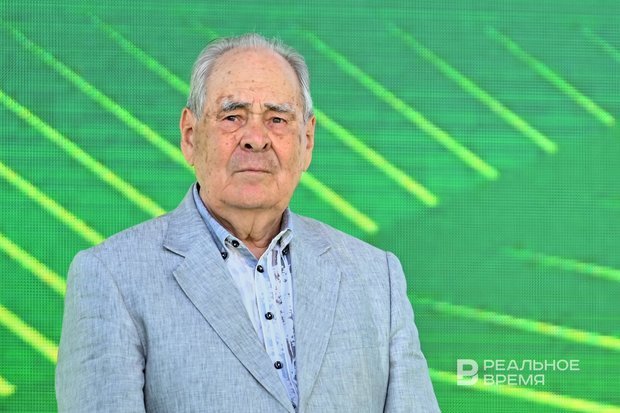
It followed from his speech that irrigated pastures are proposed to be built in particularly arid places, and not everywhere.
“We will not go with excessive costs. It takes 300 tonnes of water to irrigate the soil one time. We know the price of the issue," Shaimiev assured. However, this proposal was not continued.